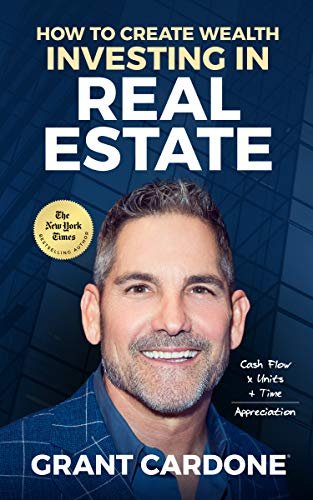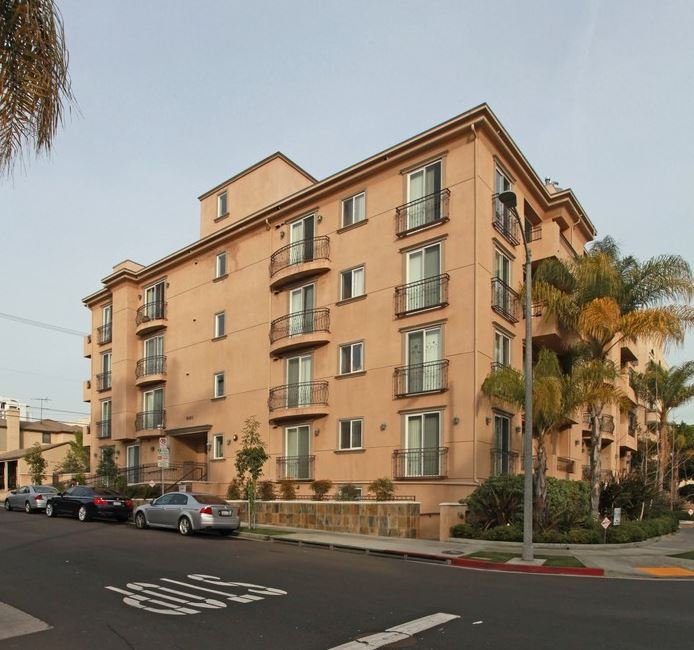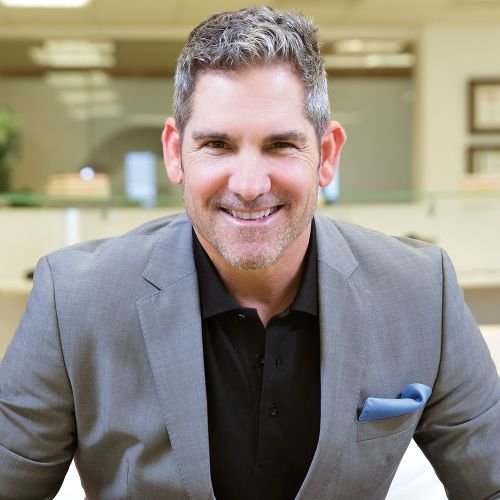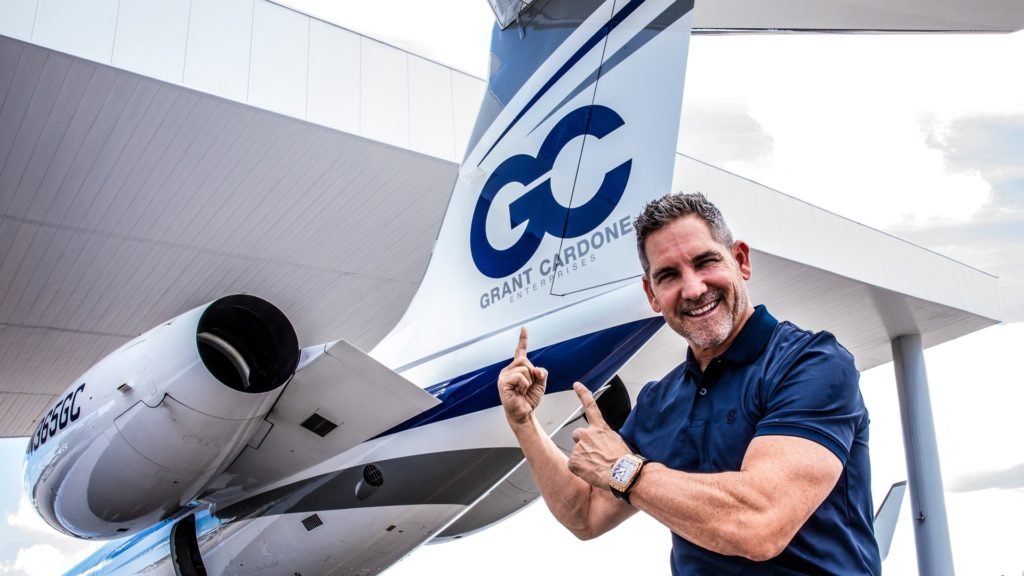There is a lot to know when buying your first multifamily property. There is a lot of emotion, whether its anxiety, nervousness, or excitement.
Your first multifamily investment is a step towards a life of financial freedom, and can create more time for you to do what you enjoy most, whatever it may be.

The 26 criteria are from Grant Cardone’s book, How to Create Wealth Investing in Real Estate. Grant, a bestselling author, delivers the 26 most important things he thinks you as a potential investor should consider before buying your first multifamily property.
Here are 26 criteria you need to to know for your checklist when buying your first multifamily property, A-Z.
- 16 Units or More
- Love the Property When You First Visit It
- Be Cash Flow Positive Without Improvements
- Use Debt on Your First Deal, and No More Than 75%
- Have an Active Manager on Property
- Have a 1.25% Debt Coverage Ratio
- Set Aside $250-$300 per Unit per Year for Future Renovation
- Have an Actual Insurance Quote
- Assume Increase In Property Taxes at Full Rate
- Use 40% or More As the Expense Calculation
- Assume No Increase in Effective Gross Income
- Have All Obvious Repair Costs for Next 36 Months in Reserve
- Know Break-Even Occupancy (Worst-Case Scenario)
- Know the Financial Statement by Heart
- Use a Broker
- Walk and Create Folders on at Least 25 Deals
- Produce At Least $24,000 a year regardless of Cash on Cash Percentage
- Have Minimal 25/50/75 Rent Increase Potential
- Have a Solid Exit Plan
- Do an 8% Exit Calculation
- Have Loan Underwriting Done by a Third Party Without the Influence of Your Opinion
- Use Worst-Case Scenario on Income
- Know the Cost Per Door of Expenses Excluding Taxes
- Underwrite the Deal Assuming All Debt, Including Promises to Partners, and All Principle and Interest When Calculating for Cash Flow
- Assume 2 Years of Break-Even
- Move Fast, and Buy the Deal
The 26 Criteria You Should Know When Buying Your First Multifamily Property
A. 16 Units or More
“Without scaling number of units, it is almost impossible to have a big score.” -Grant Cardone

Obviously, buy what is possible for you to buy.
If you can only get financing for a triplex, get the triplex. But make sure you build up to at least 16 units.
16 units is really when cash flow starts tasting sweet. You’ll get hints of it from single-family homes, a slight taste in duplexes and triplexes, and then you hit 16-units.
Units = Scalability
The more units you have, the higher you can scale your real estate portfolio. And obviously, the higher you scale, the more monthly income you receive.
This is why you need to go against the temptation of buying low, and instead buy what pays.
B. Love the Property When You First Visit It
“If you don’t love it the second you walked on it, and have to make sense of how it will work, it will never work.” -Grant Cardone

It’s more important to avoid a bad deal than risk taking one because it could turn out to be good.
There will always be more properties out there, and if you don’t love it, you shouldn’t buy it.
The best way to know how to recognize a good deal when you see one is just to walk as many properties as you can. Walk hundreds, even thousands. Each property you walk with increase you experience, which will increase your know-how and confidence in finding the good deal.
C. Be Cash Flow Positive Without Improvements
“Cash flow is the holy grail of real estate investing and probably the least understood.” -Grant Cardone
The property will need to have the ability to cash flow before you make improvements, because nobody knows what it will cash flow for after improvements.
The only thing set in stone is how much it was renting for before the improvements, and it should be a cash flowing property before you are willing to buy it.
Why? Because cash flow is the lifeblood of a business. It is talked about— in every book about real estate, not just Cardone’s.
D. Use Debt on Your First Deal, and No More Than 75%
“Don’t pay cash for your apartments. This is not Dave Ramsey investing.” -Grant Cardone
Ask billionaire Donald Bren if he uses debt. Ask Donald Trump. Ask Sam Zell. Ask Ben Mallah. The list goes on. These guys have all made more money than Dave Ramsey— some 10 time times over, and more.
That is fairly similar to using debt, versus not using debt.
When you use debt, you can get returns 4-5x higher than if you didn’t. This is because you can use debt to leverage higher-valued properties. Instead of a $100,000 property, you can get a $500,000 property, which brings 5 times the monthly cash flow as well! Use that cash flow, and reinvest it into more assets, bringing in more cash flow, and the cycle continues.
There is good debt, and bad debt. A mortgage on an investment property is good debt, because it pays you, and you don’t pay anything on the debt, your tenants do.
-Do make sure you don’t overleverage though, which is where you have too much debt compared to equity and you are tilting on the edge of bankruptcy, this is why Grant suggests you should have at lest 25% equity in whatever deal you go into.
E. Have an Active Manager on Property
“Do not skimp on your manager. A manager that is underpaid will steal from you.” -Grant Cardone
If you want all the late-night calls, early morning headaches, and other tenant problems to go away, hire a management team!
Even if you don’t mind the headaches, you still need a management team. A good property manager will find you a good tenant, make sure they pay, and if they don’t they will take care of the eviction process.
Managers also take the brunt of all of the complaints and problems, and gets it fixed. Meanwhile, a good manager will take 10%.
Assuming you get $1,000 monthly, they will get $100. You can use the extra time you save and make far more than $100. And by the time your cash flow grows to where it may not be worth it financially, you won’t be able to manage all the properties because you will have so many.
So get a property manager, and pay them well. If they do a good job, they’ll deserve it.
F. Have a 1.25% Debt Coverage Ratio
“Never go below a 1.25% DCR.” -Grant Cardone
The debt coverage ratio (DCR) allows a bank to examine the creditworthiness of a person or business that wants a loan.
Your debt coverage ratio (DCR) is defined by the formula Net Operating Income / Total Debt = DCR
If you have a DCR under 1, that means your annual debt payments amount to more than your annual income. A DCR over 1 means you are positive. Grant suggests a DCR of over 1.25% at a minimum, so that .25% can be a cushion, and positive cash flow in your pocket.
G. Set Aside $250-$300 per Unit per Year for Future Renovation
“This will also be required by the lender, but you should insist on at least this number annually set aside for unplanned property improvement.” -Grant Cardone
There will be unplanned rehabs that need to be done, and things will break. Things will need to be updated. If you don’t have a cash reserve, your business is skating on thin ice, and it just takes one thing to go wrong before you are forced to declare bankruptcy.
H. Have an Actual Insurance Quote
“You should have an actual quote on your real estate before going under contract, not an estimate, a firm quote.” -Grant Cardone
You need an exact number before you go under contract. Real estate investing is a numbers game, and if your number is off, it could destroy the entire investment.
I. Assume Increase In Property Taxes at Full Rate
“Do not be tempted by real estate agents pro formas suggesting a percentage of the full price.”
Always assume worst-case scenario when evaluating your first deal, and that begins with the property tax.
Always assume that your property taxes will increase at the full rate. It is better to not need it but have it than to need it and not have it.
J. Use 40% or More As the Expense Calculation
“Any calculation used below this is naive and irresponsible.” -Grant Cardone
It is best to use worst-case scenario, and you need to factor expenses as a major blow to your profit.
K. Assume No Increase in Effective Gross Income
“The real estate agent and seller are going to try to convince you the property will produce higher rents in the future. While this is true, do not assume an increase in effective gross income.” -Grant Cardone
It’s better to be pleasantly surprised than to have less than expected because your were too eager.
You will be able to raise the rents periodically in most places, but do not assume that it will be so. Sometimes you won’t be able to, and it just takes that one time when you’re not prepared to bite you.
L. Have All Obvious Repair Costs for Next 36 Months in Reserve
“Never lose a piece of property because you can’t take care of it.” -Grant Cardone
Many of Cardones’ friends went broke because they didn’t set aside enough money to pay for repairs, and they considered Grant ‘too negative’ for having set-asides.
Make sure you are able to cover all obvious repairs coming up, and your $250-$300 per unit doesn’t count for this.
M. Know Break-Even Occupancy (Worst-Case Scenario)
“When buying a deal, plan for worst-case scenario and find out what percent occupied gets you to a break even.
Step 1. Find out what percent occupied gets you to a break even point.
Step 2. Look back over history and see if the market or that property has ever reached that occupancy level.
N. Know the Financial Statement by Heart
“I know the financial statements of my deals like I know the voices of my children; I don’t need to see their face to know who I’m talking to.” -Grant Cardone
The financial statement is where the numbers are, and real estate investing is a numbers game.
If the numbers don’t fit, the deal won’t work, and you could lose everything.
Know the financial statement.
O. Use a Broker
“Brokers are valuable connections to sellers and even more valuable to buyers when you exit.” -Grant Cardone
Brokers give you access to the best deals on the market, many deals that the average investor doesn’t see.
The big players always use a broker, because they know how important brokers are to transactions.
Brokers can act as a buffer, they can help negotiate, they can give you more information, and they can connect you with valuable connections.
Use a broker.
P. Walk and Create Folders on at Least 25 Deals
“There is no book more valuable on real estate than walking deals and collecting folders.” -Grant Cardone
The best education are the deals you’ve walked, and the experience you got from talking to people and seeing the properties firsthand.
Q. Produce At Least $24,000 a year regardless of Cash on Cash Percentage
“The reason this is important is so you don’t invest in deals too small and waste your time. If it doesn’t make at least $24,000 a year, then the target will be more of a bother than a solution.” -Grant Cardone
If you are able, this is a great strategy to go by. The more cash flow you have, the more investments yo ucan make.
R. Have Minimal 25/50/75 Rent Increase Potential
“The property should be able to take a rent bump. If not, then you are buying something at full market rents and that would indicate you have no place to grow the property in the near future.” -Grant Cardone
You first deal should have room to grow, so that you can benefit from rent increases, cash flow, and appreciation all-in-one.
The goal in the beginning is to scale up as fast—and safely—as possible, and an all-in-one growth property will help get you there.
S. Have a Solid Exit Plan
“The exit is vital to knowing how you will finally sell the property, or refinance it, and capture the upside on the property.” -Grant Cardone
Before you buy, you need to have a plan to sell. The plan needs to realistically match with what the property is capable of, so that you don’t get caught in a bind.
You need to know what the expected price of the property will be when you plan to sell it, and how it will affect the returns.
T. Do an 8% Exit Calculation
“What price can you sell at that will allow the new buyer to be able to make enough money to warrant his/her investment?” -Grant Cardone
Real estate isn’t a game of hoarding money and cheating people. And when you try to sell, the buyer’s won’t be stupid. They will do their due diligence beforehand.
You want to provide an opportunity for the next investor to make money once you’re done with the deal, and you need to provide them with an attractive investment.
U. Have Loan Underwriting Done by a Third Party Without the Influence of Your Opinion
“Have someone with underwriting experience look at the deal you are buying to determine how they see it.” -Grant Cardone
When your opinion is in the underwriting, it can taint the view of how things actually are.
Get underwriting done by a third party, who has no idea what you think, so that you can get an outside perspective.
V. Use Worst-Case Scenario on Income
“If your deal only makes sense if you get rent increases, it does not make sense and it will not make dollars.” -Grant Cardone
Always use worst-case scenario when evaluating properties. There are many deals out there, and thousands more will pass by as you’re looking. Make sure you find a deal that fits all the criteria, and find a deal that gives you a lot of room and is able to handle the tough times.
W. Know the Cost Per Door of Expenses Excluding Taxes
“Find the cost per door average average in your market, and use that number to calculate, even if you now you can operate below that.” -Grant Cardone
You need to know how much each door costs, to see if the cash flow from each unit is worth the expenses, and how much room does one unit give you. How much do you lose when one unit is vacant?
X. Underwrite the Deal Assuming All Debt, Including Promises to Partners, and All Principle and Interest When Calculating for Cash Flow
“Even if the lender or investors don’t require principal paydown, underwrite your deal assuming they do.” -Grant Cardone
You need to know how much risk you are taking on when entering a deal, and you need to know exactly the cash flow that you will keep each and every month.
Y. Assume 2 Years of Break-Even
“You don’t want to lose a great property because you weren’t able to get through a couple of bad years.” -Grant Cardone
If the property broke even for 2 years, would you still want to own it? If the answer is no, then look for a new deal.
Grant has never lost a property because he always plans for the worst-case scenario. Nobody wants to confront these types of decisions, but it is necessary to put excitement to the side and consider every option.
Z. Move Fast, and Buy the Deal
If the property met the criteria A-Y, and you know its a good deal, get the loan, and take the deal.
The one thing that leaves people out to dry in real estate, it is slow movement. Fast closers get the deal. Bigger isn’t better, real estate is all about speed.
The 26 Criteria to Consider Before Buying Your First Investment Property – Grant Cardone

As said in the introduction, the 26 criteria are from Grant Cardone’s book, How to Create Wealth Investing in Real Estate. Grant delivers the 26 most important things he thinks you as a potential investor should consider before buying your first multifamily property.
Grant Cardone is a bestselling author and real estate mogul, who began his real estate journey over 30 years ago, and now helps teach people about real estate investing while he actively looks for new deals and manages over $700M in assets.




